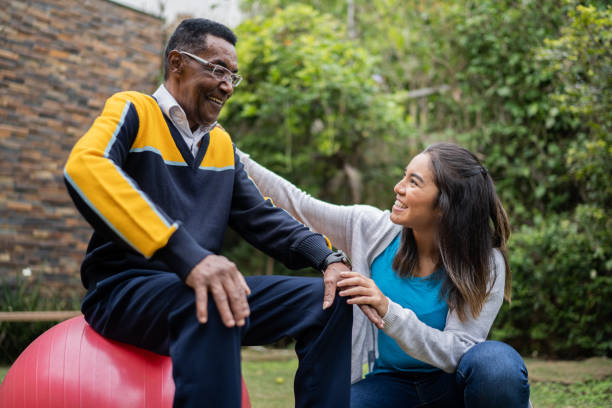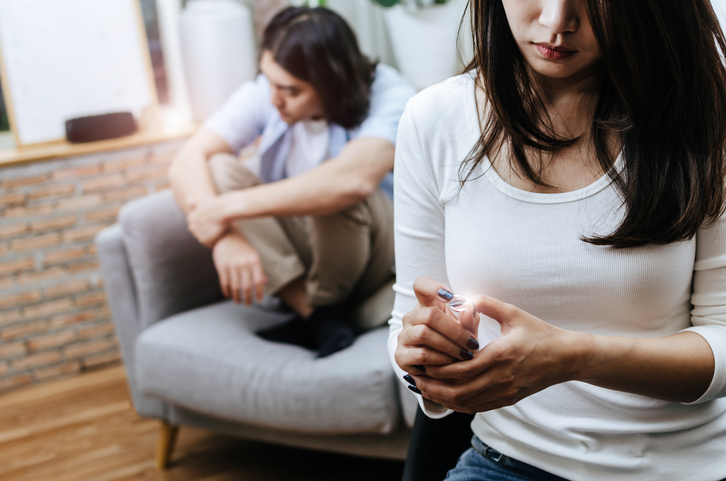Lakeview Health was able to offer me a shorter stay than recommended. I wasn’t hesitant to take it, but I was afraid my family would find out how horrible I was. I felt that I had to control the narrative and get back home. But, my report wasn’t mine to tell. It was entirely my “ism” – it just wasn’t clear to me yet!
I kept asking for more time even though it was time to go. I was terrified to go because I realized I was an alcoholic and could not drink socially. My addiction has caused many problems, including my marriage and relationships with my daughters. I knew that this would be the most challenging obstacle. I attended IOP meetings and went to Lakeview Health. I liked IOP, although I wasn’t a fan of the meetings. My therapist kept encouraging me to participate in other discussions, even though I was close to becoming a “dry drinker.”
It wasn’t easy because my family wasn’t happy with me, and they weren’t keen on me doing IOP plus AAA. They thought I was selfish. My husband finally came to IOP for a family night; the next day, he advised me to find a sponsor. It was a joyous moment! This was my first glimpse of hope for our marriage. The following Saturday, I went to a women’s group and found my home group there. Two weeks later, I had a sponsor. I called her every single day and attended every meeting. IOP was completed a few weeks later. I was already a leader, secretary of the home group, and well on my path to the 12 steps when I received my 90-day chip.
When my husband was required to leave for work, I still remember it. Although everyone was nervous, I kept to my routine. While he was gone, he went to dinner with his marketing team, which included men and women. Although he is a “normie,” he can still responsibly drink. However, this was a trigger for him. My fears were manifested in anger and jealousy, and the feelings of loneliness began to creep back in. My husband could drink with these women, but not with me. It was a blow to my ego. My sponsor was able to share her experience with me and help me overcome these feelings. She helped me take inventory of my fears and discuss them together. This allowed me to process my feelings and communicate with my husband. This problematic situation allowed us to become closer as husbands and wives. There are moments when we feel jealous, but my husband has become my greatest supporter.
It was suggested that we continue the activities in our assertive community groups after our treatment ends. It meant that I would list three things I was grateful for each day. One strength. My agenda for the day. And a list. 1. Stay sober, 2. Daily RIPS (readings, inventory, prayer, and step work) Meeting and 4. Sponsor.
To maintain constant communication with my daughters, I asked them to do it with me for me to be held accountable. They were initially reluctant to start writing down the information independently, but they soon became more interested. This was a small victory in our efforts to heal our marriages. My husband joined me in praying with us, and we began to pray together every morning. My children started to show some improvement when I reached steps 8 and 9. These were the most difficult steps for me to take. My youngest child said she was proud of my recovery, while my oldest complimented me for my hard work. My middle child was most like me and most angry about me. She had been through some difficult times while I was sober. I was more attentive and able to help her in the way she needed.
We agreed as a family to enroll her in a program for teens. She got in the car one night after her group session and thanked us. She thanked us for being so understanding and said she regards me as a role model! Me! Can you believe it?! It was so amazing to hear her say it. I thought my heart would explode. My daughters didn’t need to hear “I’m sorry,” the words they demanded the first night I returned home. They could see it in me.
My obsession with alcohol disappeared after I had been sober for six months. For New Year’s Eve, I took a trip with my family and my sister’s family. I was the only one who decided not to drink in my presence, which made me mad. I knew by now that my anger could cover up something else when it reached its peak, so I had my assessment. I feared that I would make them feel excluded and prevent them from celebrating the way they wanted. I realized I wanted them all to drink on New Year’s Eve. I had to read them a passage from the Big Book. It allowed me to tell them they could drink and that it was okay for me to do so. My obsession was gone, and I started sharing my story after I got my six-month chip. Sharing your experiences, strength, or hope with others is exhilarating. My doctor ordered lab work to test my liver enzymes. My liver enzymes were 666 when I arrived at Lakeview. Six months later, they were perfectly normal. It was indeed a miracle!
I have PTSD from an attack at gunpoint that I suffered. I see a therapist who uses EMDR to help me. Because of my attack, I am afraid to be around men and people I don’t know. This led me to seek refuge from others who were actively drinking. But I don’t think my trauma disappeared just because I stopped drinking. I have seen a significant shift in my PTSD since I was able to meet with strangers and even men. I can now go to meetings alone and sit with men, especially in my blind spots, without feeling anxious. This is a significant accomplishment for me.
Nine months later, I stopped taking Acamprosate (a medication that reduces cravings). Although my doctors were pleased with my progress, I must admit that it scared me. It was my program that kept me sober, and not the medication, I was afraid. I waited for the first week to see if my obsession would return, but it never did.
I was the district secretary when I got my nine-month chip and was now sponsoring three women. I never felt more empowered. My family was receptive to me and wanted to spend more time with me. I was also helping women in the program and being of assistance. A significant shift occurred in my mindset. It wasn’t that I could finally be of service to others. I was willing to be. I realized I didn’t have to clean the house; I got to do it. Today I don’t have to clean my home. I GET to” It was a significant shift in how I view responsibilities that used to be burdensome or beneath me.
My husband and I shared our story with IOP at ten months. We were terrific, even though I don’t want to brag. My husband said that I take my recovery seriously and sometimes feel he should do more to help others as I do. That night was so fulfilling, and it has been since.
In the days that led up to my first anniversary, I went back through all of the gratitudes I had written over the past year. My growth was tremendous. I was no longer grateful for what was happening to me, but I was thankful for the love and support of my family and friends.
My bedroom door was open when I woke up to a streamer-filled face. My family decorated my house and hosted a small “birthday” party for me. My youngest invited her best friend – her mother had died of this disease several years ago – to her house, and she sent me a card. She thanked me for doing what her mother would have done for her daughter and expressed gratitude. It was so devastating that it brought me to tears.
Today, I write gratitude and strengths to my family and continue to share them. I am a regular attendee at meetings; I sponsor six women and serve as the secretary of my district and home group. The steps have helped me realize that I am happy and sober. It makes me feel calm, knowing I don’t need to drink to overcome challenges. That’s an incredible feeling.
After leaving Lakeview Health and Baptist Beaches on July 19, 2020, my life has changed in a way I never imagined. I am thankful for the journey to recovery.


